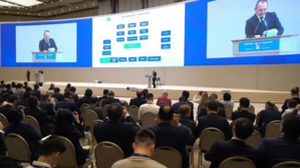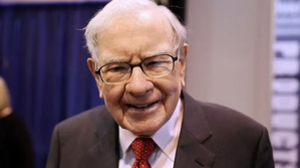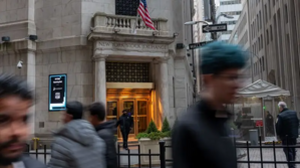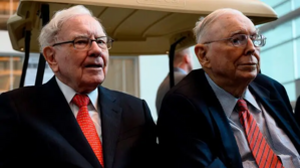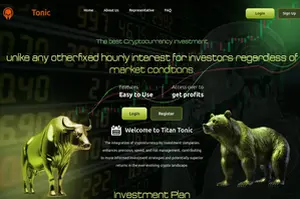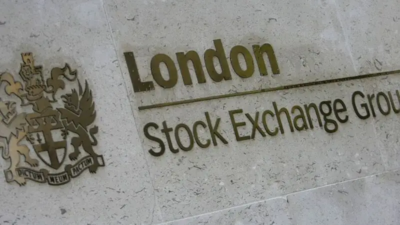This Fed meeting is dangerous for markets. Here’s why
A version of this story first appeared in CNN Business’ Before the Bell newsletter. Not a subscriber? You can sign up right here. You can listen to an audio version of the newsletter by clicking the same link.
Wall Street’s number one enemy is uncertainty, and investors are feeling a lot of that right now. They’re hoping that the Federal Reserve will clear things up Wednesday.
Investors are actually very certain about where interest rates will go this month (nowhere). About 99% of them think rates will remain paused at 5.25%, according to the CME FedWatch tool.
It’s the next few months that they’re unclear about.
Investors expect to receive some clarity from the Fed’s economic forecasts, released alongside the official policy statement. The problem is that if that guidance doesn’t jibe with what they want, markets could get volatile.
What’s happening: The past few months have been a wild ride for Fed watchers.
Economists, analysts and traders of all types kicked things off in December by predicting that policymakers would cut interest rates six times this year. Inflation rates were falling steadily at the time of those optimistic forecasts, and Fed officials seemed prepared to unsheathe their swords and cut rates.
That’s no longer the case.
Recent hawkish commentary from Fed Chair Jerome Powell coupled with a string of higher-than-expected inflation reports have tempered Wall Street’s dreams of lower interest rates.
Predictions for the first rate cut in two years were pushed back to May and then to June. Now, there’s about an even split over whether June or July will be the month. Uncertainty prevails.
“Inflation has been firmer in recent months, but we think it is still on track to fall enough by the June FOMC meeting for a first cut,” wrote Goldman Sachs analysts in a note this week. “This has become less obvious though, and our inflation path for the rest of the year is now in a range where small surprises could have large consequences.”
Goldman analysts also lowered their estimate to three rate cuts this year (they revised it from five to four less that a month ago in late February).
How the Fed can help: Enter the Fed’s quarterly Summary of Economic Projections, which contains what’s colloquially known as the dot plot.
If the Fed has shifted its thinking about when it will lower interest rates, it will come through in this chart, which shows (in a series of dots) where each of the central bank’s 19 officials expect interest rates to go in the future.
Investors pay close attention to these forecasts for information about the path of rate hikes. When there’s a shift in the plot, it tells investors that the Fed could plan a change in how they’re approaching rates.
The official policy statement from the Federal Reserve represents a consensus among the voting policy members, but this extra data allows investors to look under the hood and see what’s going on behind the scenes.
That’s important because if just two Fed officials turn slightly more hawkish, “the forecast for three rate cuts in 2024 would shrink to two, upsetting this timetable and markets at the same time,” said David Kelly, chief global strategist at JP Morgan Asset Management, in a note this week.
The plot also often shows the difference between what investors think will happen and what the Fed thinks will happen. So if the Fed projects fewer rate hikes ahead, that will likely send bond yields higher and markets lower.
Wednesday’s dot-plot, warned Kelly, could spell “danger” for markets.
Chipotle’s stock is so hot, the company’s board approved a 50-for-1 stock split
Chipotle’s board announced that it approved a 50-for-1 stock split on Tuesday, reports my colleague Samantha Delouya. The company called it one of the biggest stock splits in New York Stock Exchange history.
That means a single share of Chipotle, worth $2,797.56 as of Tuesday’s stock market close, will be split into 50 smaller shares if the move wins shareholder approval, effectively rolling back the cost of investing in the company.
Companies often decide to split their stocks when they believe the price per share is too high for average investors. In a statement, Chipotle’s chief financial officer, Jack Hartung, said the split would make the stock more “accessible.”
“This is the first stock split in Chipotle’s 30-year history, and we believe this will make our stock more accessible to employees as well as a broader range of investors,” said Hartung.
The split is not yet a done deal, though. The company will put the stock split decision up for a shareholder vote on June 6. If it is approved, Chipotle’s cheaper, post-split shares will begin trading at the market open on June 26.
Investors seemed to cheer on the potential split — Chipotle’s stock rose nearly 5% in after-hours trading on Tuesday.
The announcement comes at a time when Chipotle’s shares are trading at all-time highs.
Ben & Jerry’s and Magnum will form the core of an $8 billion ice cream company
The world’s biggest ice cream business is about to go it alone, reports CNN’s Hanna Ziady.
Unilever announced Tuesday that it plans to spin off its ice cream unit as part of a drive to boost sales and profitability, which will also entail cutting around 6% of the workforce.
After a century-long endeavor, Unilever now dominates the global ice cream market, with its brands sold around the world. “Following separation, Unilever will become a simpler, more focused company,” it said in a statement.
The newly minted firm will boast five of the 10 best-selling ice cream brands worldwide, namely Magnum, Ben & Jerry’s, Breyers, Walls and Cornetto. Sales of these and Unilever’s other ice cream brands together amounted to €7.9 billion ($8.6 billion) last year.
“The future growth of Unilever and ice cream is best served by separating the business,” Unilever CEO Hein Schumacher told journalists. He pointed to ice cream’s “distinct characteristics,” such as season-dependent demand and a supply chain that must be able to support frozen goods.
Under the growth plan unveiled in October, the UK-based company “committed to do fewer things better and with greater impact,” Schumacher added in the statement. “The changes we are announcing today will help us accelerate that plan.”
Maybe You Like
London Stock Exchange urged to do more to hold onto retail traders
The UK stock market needs to improve investor communication and engagement in order to retain its individual traders, according to a report from online trade and investor provider CMC Markets. ADVERTISEMENTUK retail investors are increasingly...
Hargreaves Lansdown rejects private equity takeover bid
The UK investment platform says the offer from a group including the Abu Dhabi Investment Authority undervalues the firm. ADVERTISEMENTHargreaves Lansdown has rebuffed a takeover proposal worth £4.67 billion (€5.48 billion) made...
Ferrovial set to offload UK regional airports amid Heathrow deal uncertainty
Ferrovial is planning to sell its stake in three UK regional airports amid difficulties in finalising its £2.4bn sale of a 25% stake in Heathrow. ADVERTISEMENTSpanish infrastructure company Ferrovial is reportedly putting up for sale...

